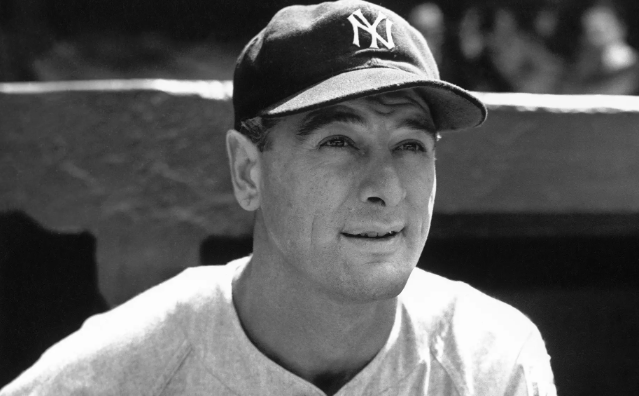On May 2, 1939, one of the most remarkable streaks in baseball history came to an end in Detroit. Lou Gehrig, the legendary first baseman for the New York Yankees, had played in 2,130 consecutive games, an iron-man feat that had earned him the nickname “The Iron Horse.” But that day, Gehrig took himself out of the lineup before the game against the Tigers, ending the streak that had begun on June 1, 1925.
The streak had been a source of pride for Gehrig, his teammates, and Yankees fans alike. He had played through injuries, illnesses, and fatigue, never missing a game. The record had surpassed the previous mark of 1,307 games held by Everett Scott and had become one of the defining achievements of Gehrig’s career.
But as the 1939 season got underway, Gehrig’s performance had declined significantly. His batting average had plummeted to .143, and he had just one home run and four RBIs. He had also been experiencing weakness and fatigue, and his coordination had deteriorated. Concerned about his condition, Gehrig visited the renowned Mayo Clinic in Rochester, Minnesota, where he was diagnosed with amyotrophic lateral sclerosis (ALS), a degenerative disease that would soon become known as “Lou Gehrig’s Disease.”
With his future in doubt, Gehrig decided to take himself out of the lineup in Detroit, ending the streak that had become synonymous with his name. In a tearful farewell speech at Yankee Stadium on July 4, 1939, Gehrig famously called himself “the luckiest man on the face of the earth” and thanked his fans, teammates, and family for their support.
Gehrig’s retirement from baseball was not the end of his story. He continued to work for the Yankees as a coach and scout and became an advocate for ALS research, raising awareness and funds for the disease until his death on June 2, 1941, at the age of 37. In 1942, Gehrig was posthumously inducted into the Baseball Hall of Fame, cementing his legacy as one of the greatest players in the sport’s history.
Today, Gehrig’s streak is remembered not only for its impressive length but also for what it represented: the unbreakable spirit and dedication of a baseball icon. It remains one of the most enduring records in sports history and a testament to Gehrig’s legacy both on and off the field.


